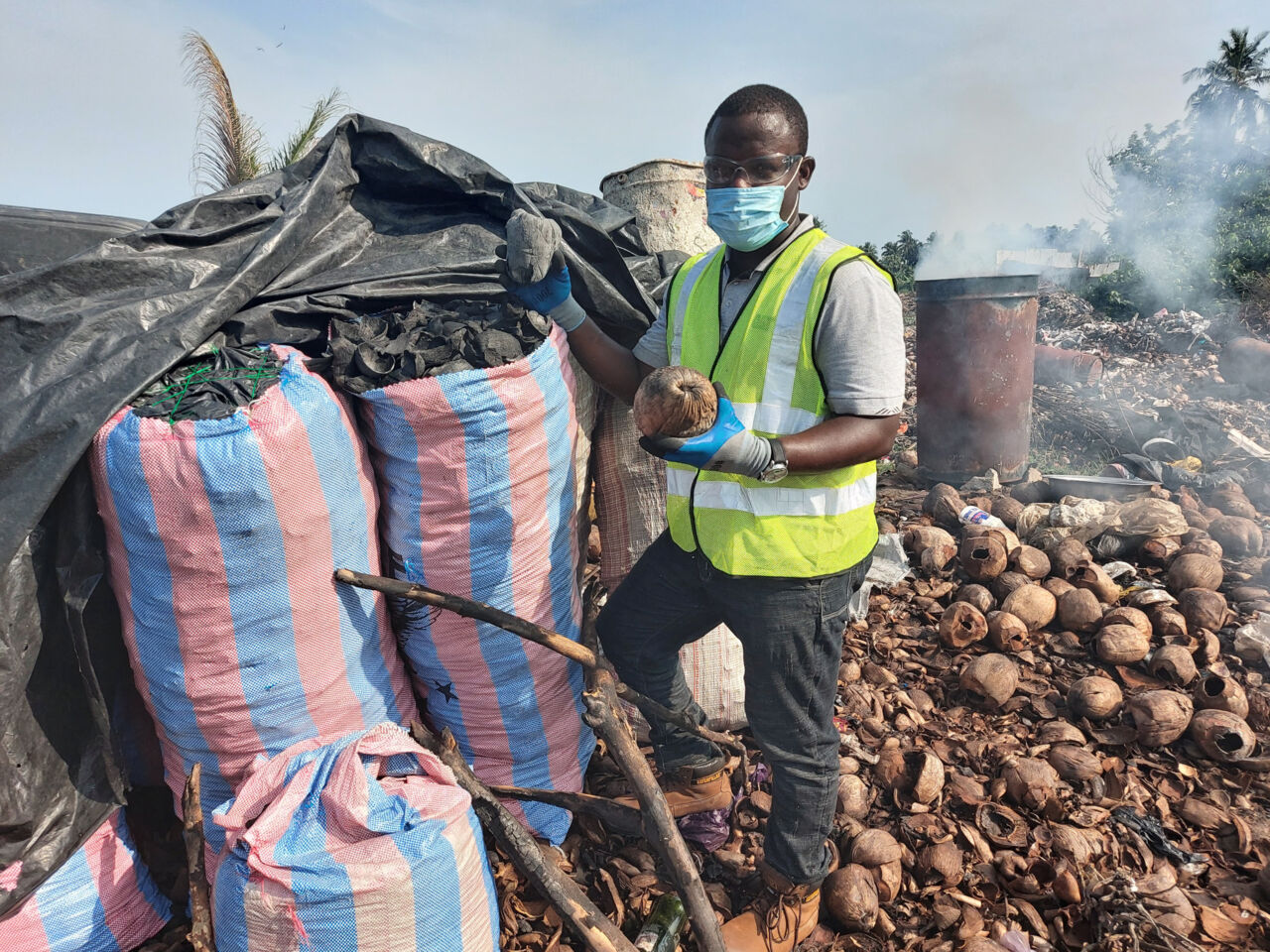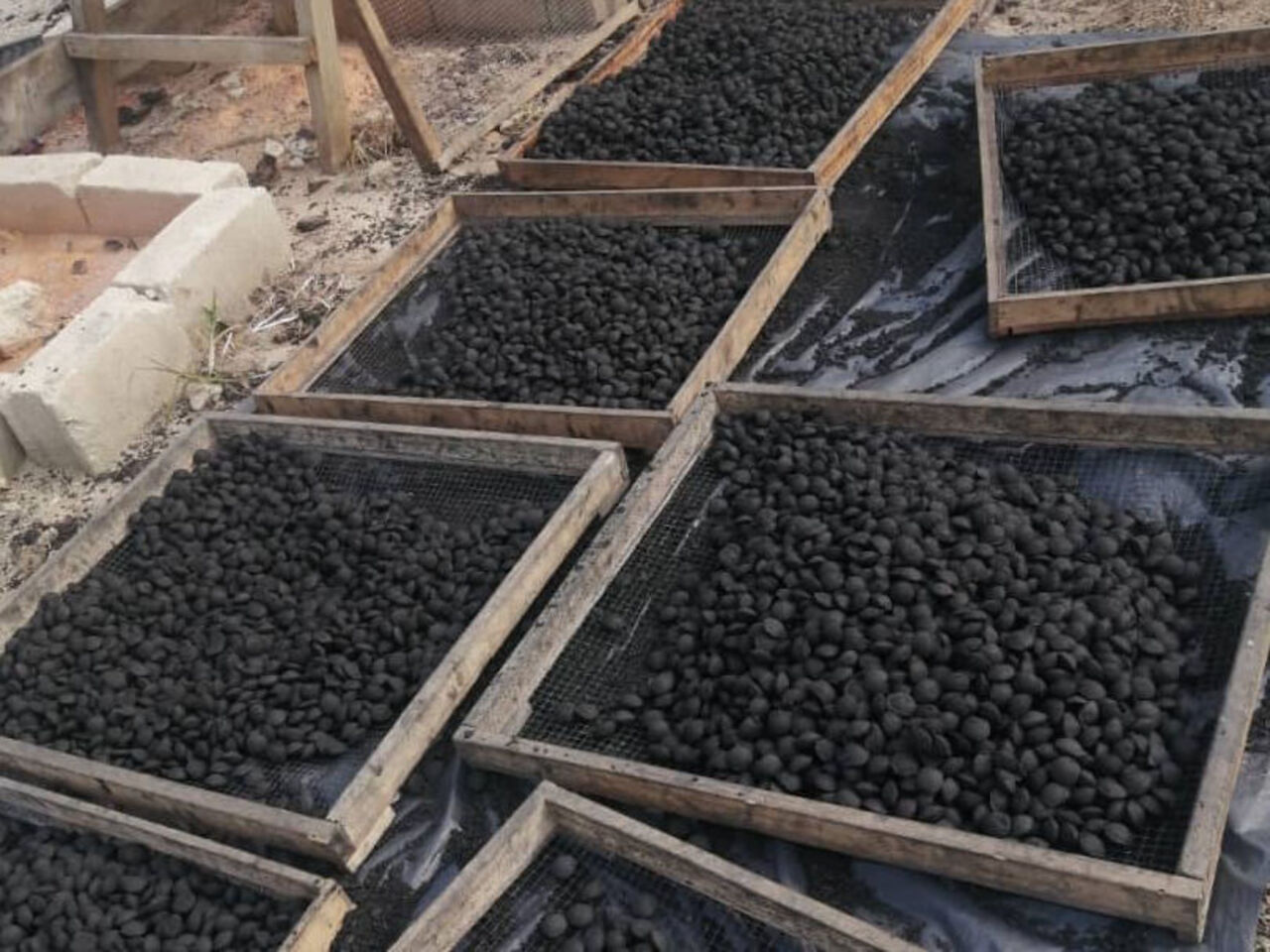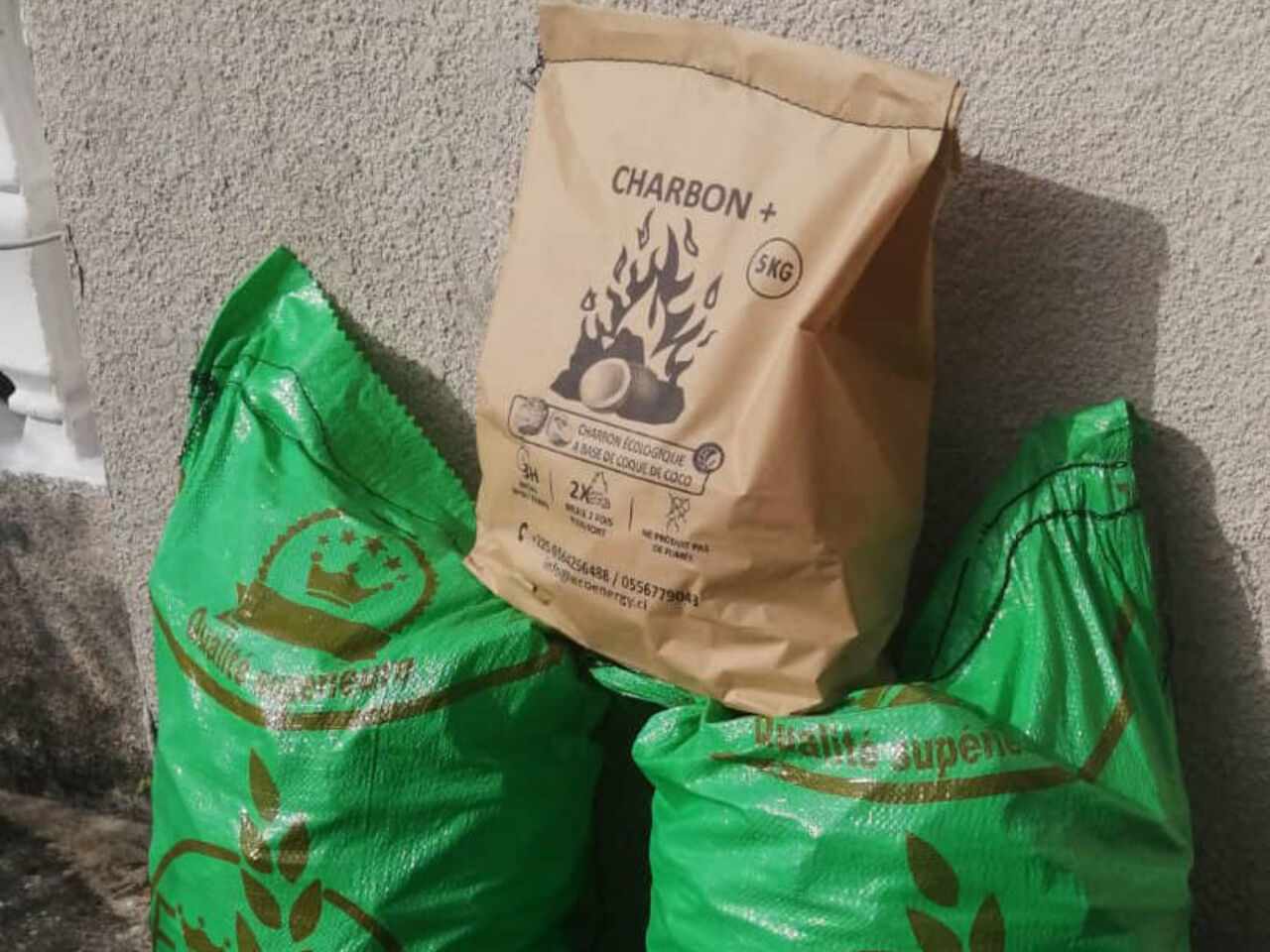27 April 2022
#SkillsSustain: Fighting deforestation one briquette at a time
A social enterprise in Ivory Coast is using coconut waste to produce cleaner energy.
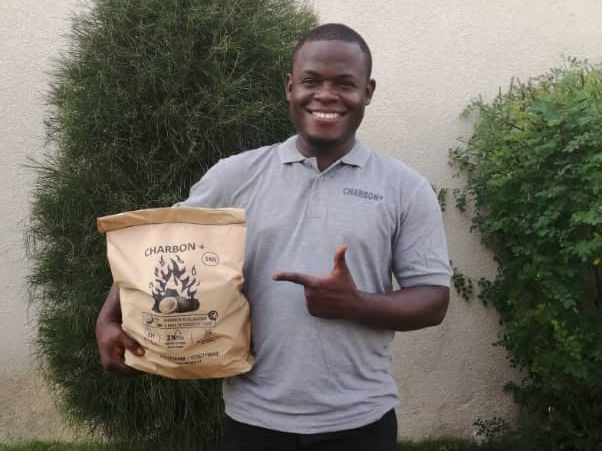
Two entrepreneurs from Cameroon are on a mission to combat deforestation by providing a cleaner alternative to charcoal. Their start-up, Eco Energy Africa, aims to bring safe and eco-friendly energy solutions to every part of the continent by recycling agricultural waste.
They were one of five teams to reach the final of WorldSkills BeChangeMaker in 2020. This popular entrepreneurial training programme, supported by WorldSkills and the HP Foundation, is currently accepting applications for the 2022 edition.
Eco Energy Africa was started in Côte d’Ivoire by Ntongwe Enongene along with his partner Joycelyn Diel Nnane with the goal of producing high-quality charcoal from recycled coconut waste.
“We gather all the agricultural waste in our country and convert it into a product that has very high demand,” says Ntongwe. “Charcoal, even today, is still the highest used source of energy in most of Africa.“
Ivory Coast has 50.000 hectares of coconut trees and is one of biggest producers in Africa. The company collect the waste, dry it, and leave it to carbonize in a controlled environment. Once the the process is complete, the carbonised coconut waste turns into char which is crushed.
“We now mix it in machines that we have imported from abroad”, says Ntongwe. The charcoal is then bound together with a natural binder known as Kasaba.
“Kasaba is a staple food here and is rich in starch, so it’s available in abundance in the Ivory Coast,” says Ntongwe. The mixture is then pressed into hexagonal briquets which are eventually dried before being ready to use.
According to the Food and Agriculture Organization of the United Nations (FAO), biomass accounts for around 60% of total energy demand in Sub-Saharan Africa (PDF, 1.3MB. Firewood is mostly used for cooking in rural areas, while charcoal is more widely-used in cities.
“These briquets become high-quality products that are sustainable, more durable, emit less smoke, and are affordable for the local community. Compared to local charcoal the brick heads that we produce can last up to three hours, whereas the charcoal from wood which drives deforestation only lasts for 30 minutes¨, says Ntongwe. He says his customers feel like they are also contributing to combatting climate change, while also buying a more efficient product.
As it emits less fumes and harmful chemicals than charcoal, the product is also much safer for cooking at home. Africa has the highest level of indoor air pollution in the world, with over 400,000 deaths from air pollution in 2017, according to UNICEF (PDF, 3.3MB).
“The ones who suffered it more are women and children, because they are always close to the place of cooking so they inevitably inhale harmful smoke”, says Ntongwe.
Eco Energy Africa is so confident about the positive impact of this model that they want to replicate it across Africa.
“All we need is the right support, because the problems we see here in Ivory Coast are the same problems I see in Cameroon and all of the other African countries,” says Ntongwe.
“What´s great is that the same raw material is available across all 55 African countries, and at the same time we will be able to help reduce deforestation that is driving climate change on our continent.”
Eco Energy Africa are one of hundreds of social entrepreneurs that have benefitted from BeChangeMaker, getting support from WorldSkills and HP Foundation to turn their business idea into reality.
Apply for BeChangeMaker 2022 with your business idea before 3 June.
Related stories
-
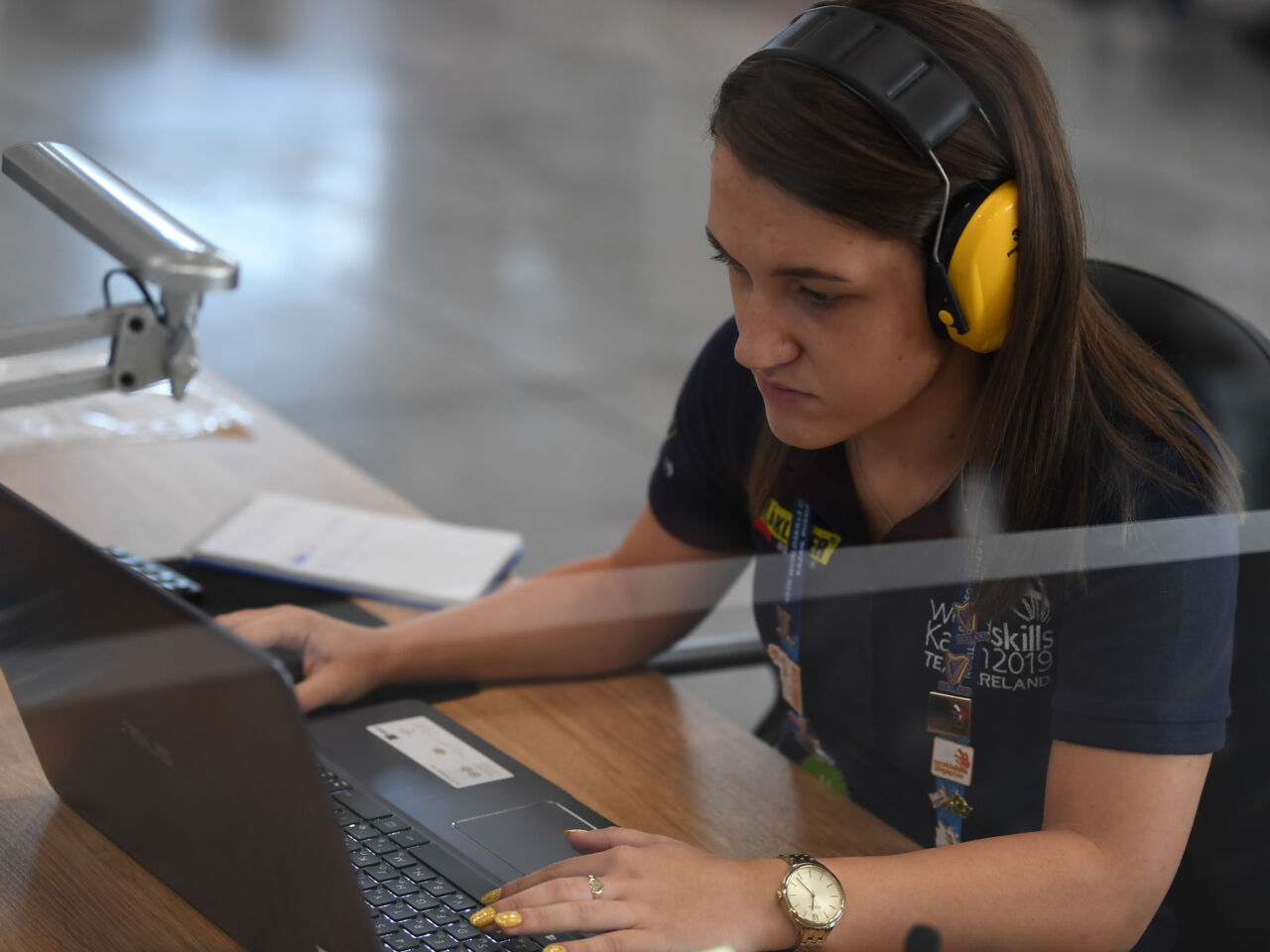
Earth Day 2023: “Every skill, Competitor and Member plays its own part in helping WorldSkills become a more sustainable event”
21 April 2023
-
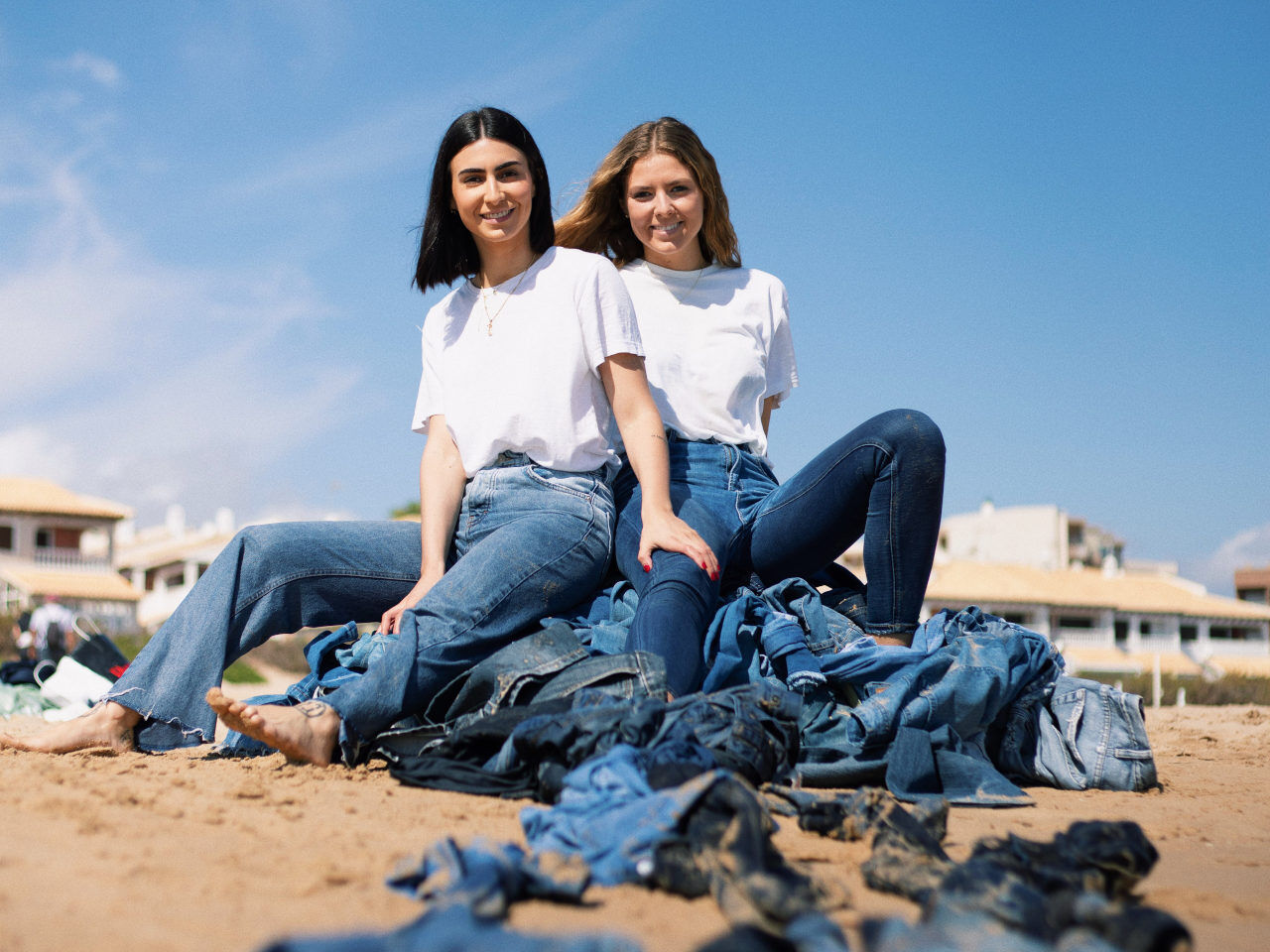
#SkillsSustain: Upcycling jeans to save the oceans
29 April 2022
-
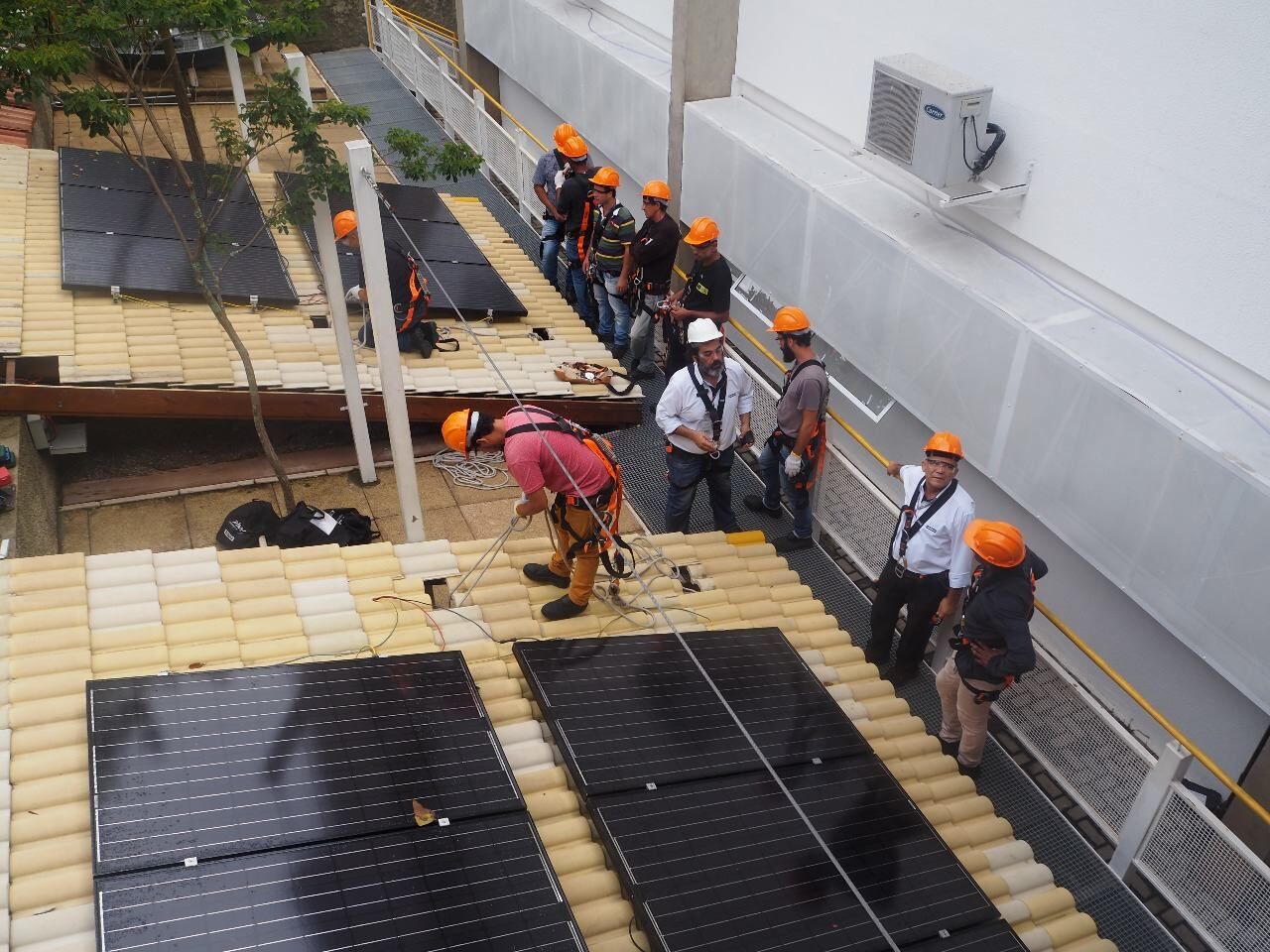
#SkillsSustain: “We must encourage the development of new renewable energy solutions”
22 April 2022
-
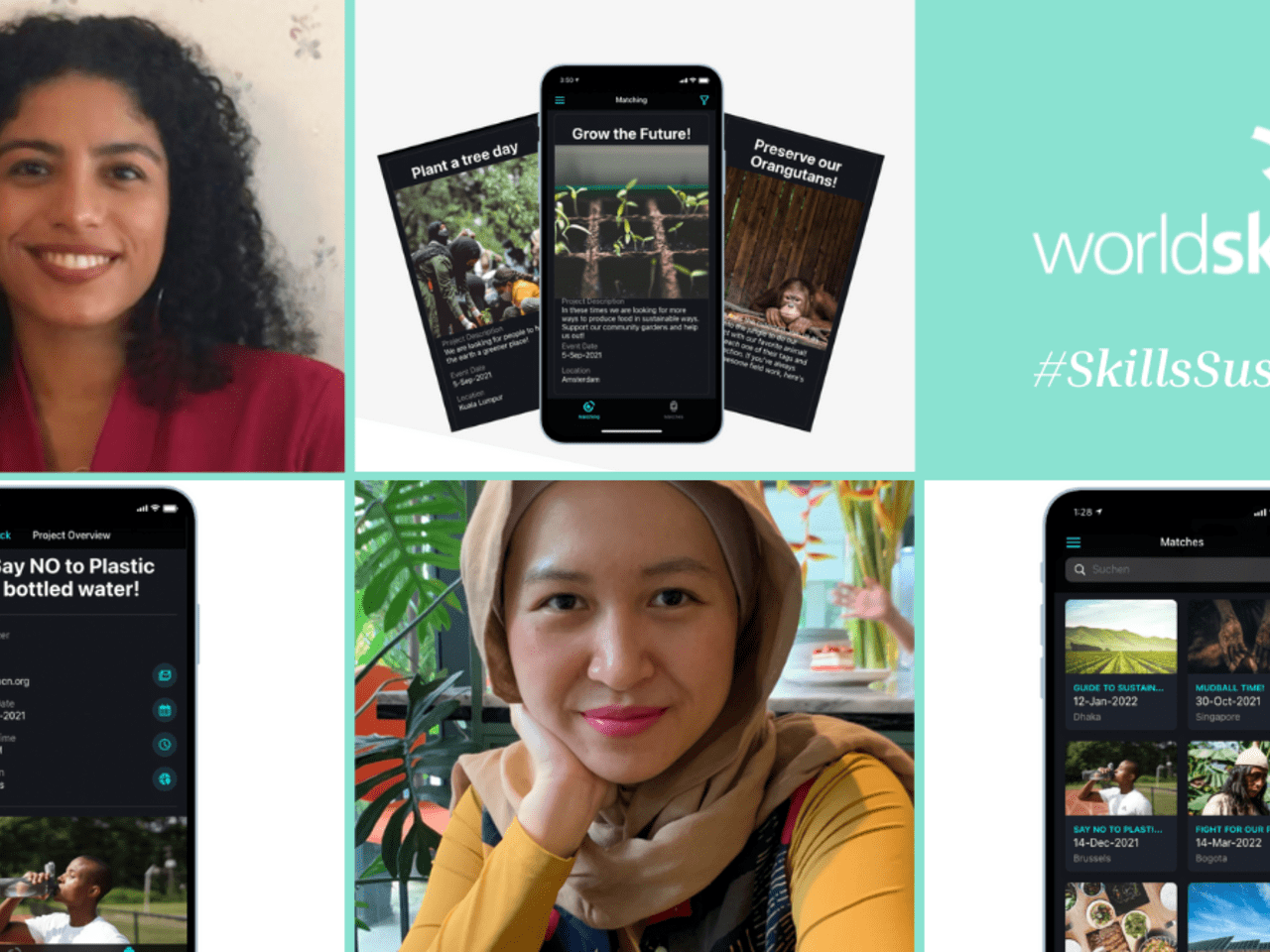
#SkillsSustain: “We need to ask ourselves how our skills can impact climate change”
21 April 2022
